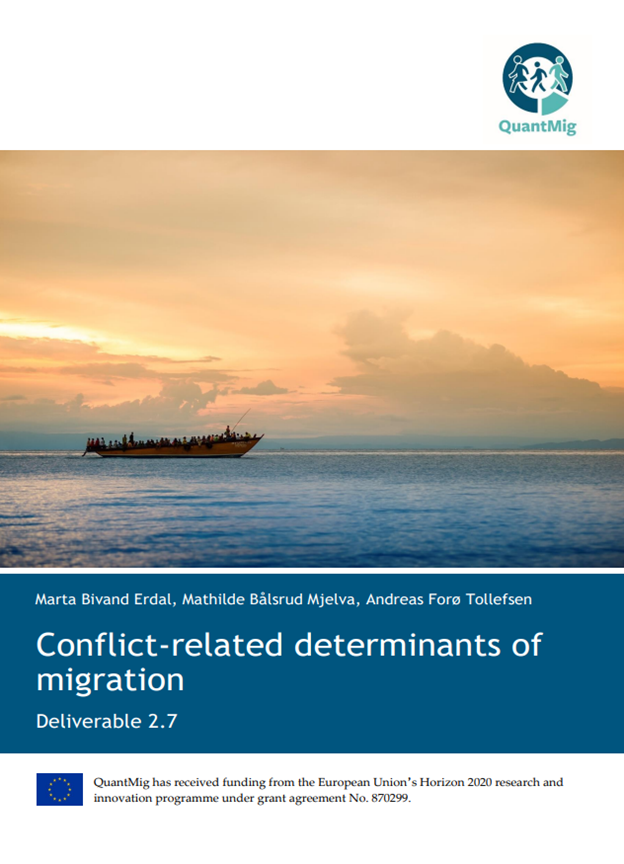
How can we understand the observable variation in ways in which conflict 'leads to displacement'? How can the fact that while some people leave, many people also stay in conflict-affected areas be better explained? And with which implications for improved policy, including for protection of people in conflict-affected areas, whether they stay or leave?
In this QuantMig Background paper PRIO researchers Marta Bivand Erdal, Mathilde Bålsrud Mjelva and Andreas Forø Tollefsen offer some possible answers, and paths forward.
Working towards a more precise understanding of conflict-related determinants of migration is important as it may improve our ability to address the challenges faced by people affected by conflict, whether they stay or leave. In this paper we have documented the relatively limited knowledge from existing research, with more sophisticated levels of precisions, about conflict-related determinants of migration. The paucity in exact understanding of what it is about conflict that shapes whether people stay or go may be surprising, given the huge numbers of people displaced globally. With this paper we hope to set the scene for future studies which may take on the analytical and methodological challenge of further disaggregating and measuring how different types of conflict – in relation to forms of violence, durations, and actors' roles – may varyingly affect the staying and leaving behaviour of affected populations.
Meanwhile, the existence and availability of data which are suited to such analyses, remains a challenge. There are promising developments in terms of making data available and shareable. However, there are often significant problems with the precision and scope, as well as timing, of data that would be necessary in order to move knowledge frontiers forward. In this context, working toward better quality data should be combined with openness and humility about the limitations of data that is being analysed. In other words, both the phenomena in question – migration in conflict-affected areas, and specifically conflict-related determinants of migration – are characterised by changeability and thus uncertainty at any given point in time, as, in many ways, are the data employed to understand these phenomena.
More precise understanding immobility, as much as mobility, in contexts of crisis – whether caused by violent conflict or the impacts of climate change – is among the most pressing challenges looking ahead, both for research and in aid of better-informed policy responses.





